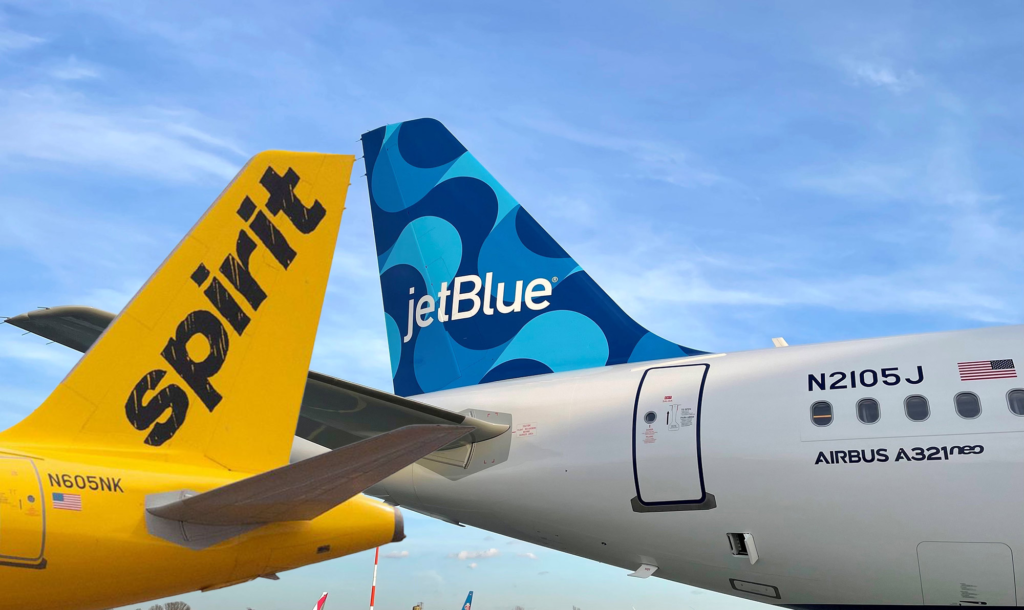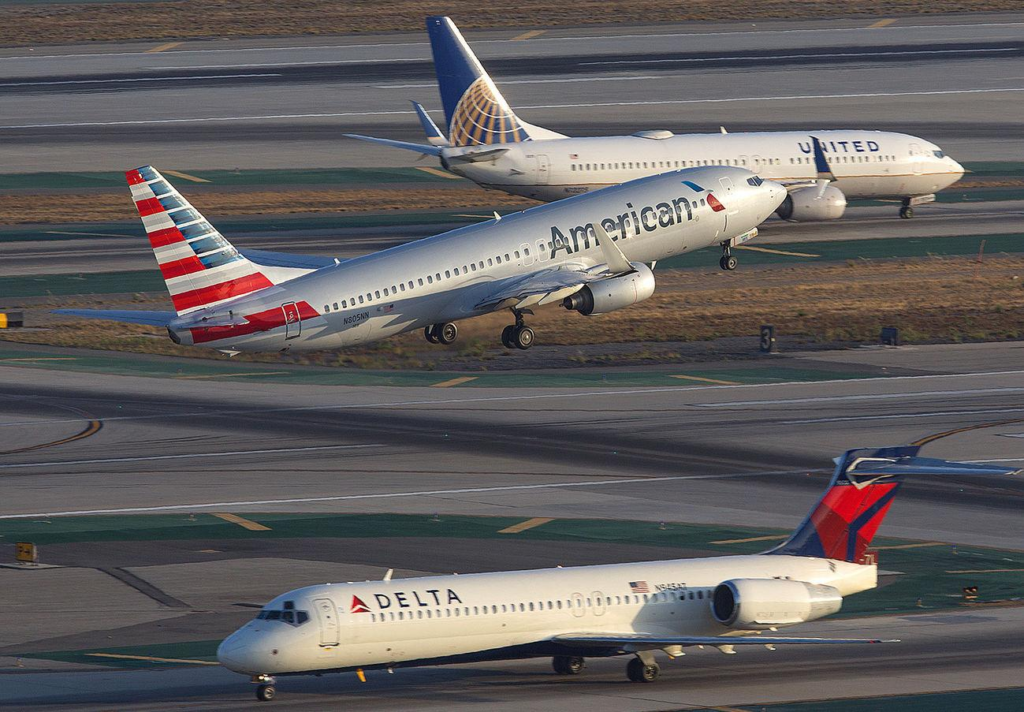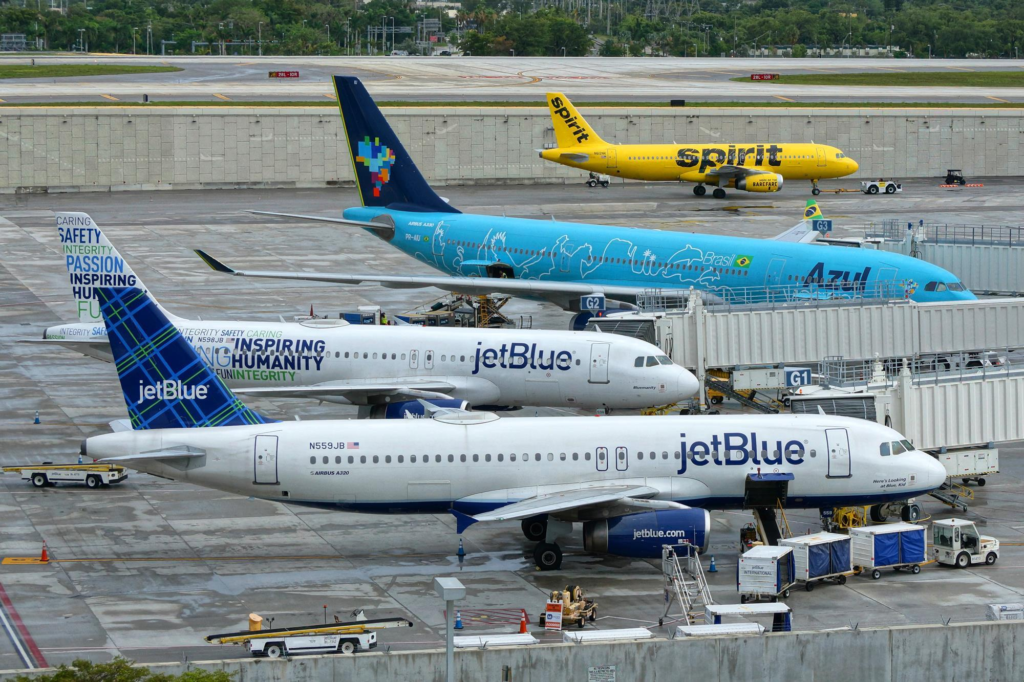BOSTON- As the antitrust trial concluded, a federal judge, deliberating on the U.S. Justice Department’s attempt to thwart JetBlue Airways’ (B6) planned $3.8 billion acquisition of Spirit Airlines (NK), suggested on Tuesday the potential approval of the deal if JetBlue were to divest additional assets.
U.S. District Judge William Young conveyed to a JetBlue attorney his anticipation that airfares might increase in the absence of Spirit, an ultra-low-cost, no-frills carrier, which currently plays a role in “undercutting everyone else” and exerting downward pressure on prices.

JetBlue Spirit Merger Trial Ends
However, the judge presiding over the non-jury trial in Boston, who will ultimately determine the case, expressed reservations about the Justice Department’s plea for a permanent injunction against the deal.
He noted the airline industry’s dynamic nature, marked by distinctive opportunities and challenges in the post-COVID environment.
Judge Young hinted at the possibility of additional divestitures by JetBlue, which has already committed to selling gates and slots at airports in New York City, Boston, Newark, New Jersey, and Fort Lauderdale, Florida, as part of its efforts to address concerns raised by U.S. regulators.
Closing arguments were presented by attorneys for both parties in a trial that commenced on October 31. The Justice Department, along with six U.S. states and the District of Columbia, filed a lawsuit in March, contesting the merger on grounds of unlawfully detrimental effects on competition within the airline industry.

Judge Young Remarks
Judge Young remarked that he had encountered situations in which a court found divestitures to be near but not entirely sufficient. In such cases, the court proceeded to indicate that the situation could be deemed acceptable if certain divestitures were implemented.
Clarifying that his questions did not indicate his potential ruling, Judge Young inquired of Justice Department attorney Edward Duffy whether a scenario similar to requiring additional divestitures could be considered if he deems the current proposal insufficient and in need of restraint.
Duffy responded, stating that “there does not seem to be a remedy other than a full-stop injunction that would restore competition.” However, JetBlue attorney Ryan Shores asserted that Judge Young had the authority to formulate such an order.
This case is part of President Joe Biden’s administration’s efforts to uphold competition among low-cost airlines and enhance antitrust enforcement across various industries, reported Reuters.
This venture has yielded varying outcomes in court. During his closing argument, Shores emphasized that the proposed merger was pro-consumer and played a crucial role in enabling JetBlue to emerge as a “viable, disruptive national challenge to the industry’s dominant airlines.

Big Four US Airlines Owns 80%
The four leading U.S. carriers – United Airlines (UA), American Airlines (AA), Delta Air Lines (DL), and Southwest Airlines (WN) – collectively hold an 80% share of the domestic market, as outlined by their lawyers. In contrast, JetBlue and Spirit jointly command approximately 8%.
Ryan Shores highlighted that, unlike the major airlines that have prospered following the industry disruptions caused by the COVID-19 pandemic, lower-cost carriers such as JetBlue and Spirit have encountered substantial financial challenges, hindering their capacity to compete effectively with the industry giants independently.
Edward Duffy argued that permitting the merger of JetBlue, the sixth-largest U.S. airline, and Spirit, the seventh-largest, would increase prices and reduce flights once the lower-cost Spirit ceases to be a competitor. Duffy noted that JetBlue itself anticipates a 30% fare increase.
Duffy asserted, “This transaction is a bad deal for consumers. It risks a reduction in competition.”
Stay tuned with us. Further, follow us on social media for the latest updates.
Join us on Telegram Group for the Latest Aviation Updates. Subsequently, follow us on Google News.

